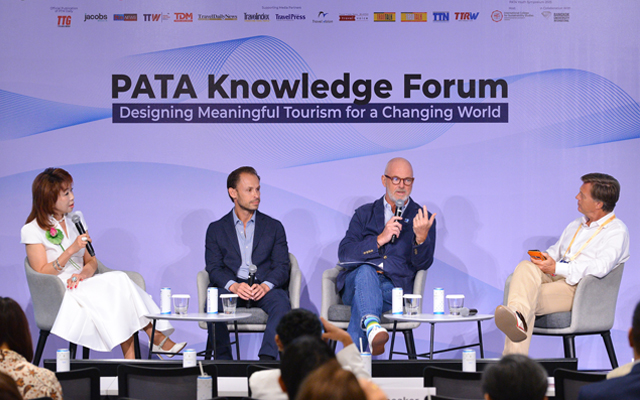Today’s travellers want personalised, seamless and instant, whether at the trip planning stage or during the trip itself, say industry experts during the Connected Journeys: Reimagining the Travel Experience in a Digital-First World session at the PATA Knowledge Forum last Tuesday.
Cindy Lui, vice president of resort sales, MGM, pointed out that travellers are used to digital experiences in their daily lives.

“They want the same with travel – personalisation, speed – and to be able to control this all within the palm of their hands. This means that service design has to be mobile-first, frictionless and integrated,” she stated.
John Williams, vice president – Asia, advertising sales, BBC Asia, agreed, adding that service providers have huge expectations placed on them and they have to constantly deliver the same.
“The overall experience has to be personalised from start to finish. It’s the ‘me’ culture,” added Mark Halberstein, CEO at Simplenight, a tech experience platform.
Every touchpoint that the consumer engages with a brand – such as its loyalty programme, website, or mobile app – needs to cater to the consumer, Halberstein noted. Brands can then advertise to consumer on their preferred social media channels.
On what defines a truly connected journey, Lui said it is one that is “very seamless, consistent and also personalised from every touchpoint from the guest’s booking process to check out”.
Halberstein indicated that it is about connecting all the components of the journey from the inception, planning, booking and fulfilment. “If a company can deliver all this, it makes the customer’s experience that much more memorable and enjoyable,” he added.
The discussion also touched on the challenges integrating technology and data in the travel ecosystem.
Speakers all agreed that a key challenge is fragmentation. Different parts of the travel ecosystem – airlines, hotels, transportation, and attractions – operate on separate platforms. This makes it difficult to collect data and create a single, comprehensive view of the guest, said Lui. There is also the added complexity of privacy concerns, especially with guests moving across borders.
Halberstein emphasised that while tools like AI and loyalty programmes are valuable, they are “useless without proper data”, so the key is to attack fragmentation and translate raw data into meaningful insights.
Speakers also noted the need to balance the push for personalisation with growing privacy concerns, suggesting that transparency and offering choice can achieve this balance.
Lui said that by being transparent about what data is collected and how it benefits guests, companies can build trust. When customers understand the value of sharing their data, such as receiving personalised dining or entertainment recommendations, they become more comfortable.











